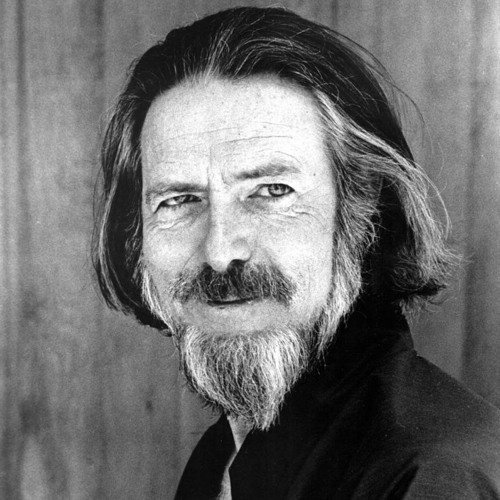
Alan Watts
irreverent pirate
plundering foreign fields for wisdom
forever blowing bubbles
#23 07/11/2021
ALAN W. WATTS (1915-1973) was a British author and lecturer whose interpretations of Eastern philosophy—Zen Buddhism in particular, and Indian and Chinese philosophy in general—influenced the beat and hippie generations and helped popularize Zen in the United States. One of the great “gnostic intermediaries” of the 20th century, the New York Times deemed Watts “the foremost Western interpreter of Eastern thought for the modern mind.”
A child of religious conservatives in rural England, and holding both a master’s degree in theology and a doctorate of divinity, Watts became a freewheeling spiritual teacher who challenged Westerners to defy convention and think for themselves. His fascination with the Zen (or Ch’an) tradition began during the 1930s and developed because it embodied the spiritual interwoven with the practical. His work became especially influential amidst the burgeoning youth culture in the 1950s and 60s, introducing readers to THE WAY OF ZEN (1957), one of the first bestselling books on Buddhism, and PSYCHOTHERAPY EAST AND WEST (1961), in which he proposed that Buddhism could be thought of as a form of psychotherapy and not a religion. His writings are noteworthy for their literateness and wit, and according to Erik Davis, “still shimmer with a profound and galvanizing lucidity.”
Though known for his discourses on Zen, he was also influenced by ancient Hindu scriptures, especially Vedanta. He spoke extensively about the nature of the divine reality which people miss: how the contradiction of opposites is the method of life and the means of cosmic and human evolution, how our fundamental Ignorance is rooted in the exclusive nature of mind and ego, how to come in touch with the Field of Consciousness and Light, and other cosmic principles. He was also adept in the composition of haiku, the 17‐syllable poem that is a literary expression of Zen.
His critics—and there were many—deplored some of his interpretations and reproached him for his admitted disinclination to practice any of Zen’s formal disciplines, especially the ascetic ones. He was not abashed, however, describing himself in his autobiography, IN MY OWN WAY (1972), as “a sedentary and contemplative character, an intellectual, a Brahmin, a mystic and also somewhat of a disreputable epicurean who has three wives, seven children and five grandchildren.”
The day before his death, Alan invited my Buddhist master to spend the day with him. I have heard they spent a lovely afternoon together blowing bubbles in the garden and watching them float away until vanishing into emptiness ‘like the imprint of a bird in the sky.’*
.
.
* Chogyam Trungpa, Rinpoche The Sadhana of Mahamudra, 1968
One thought on “Alan Watts on Haiku”